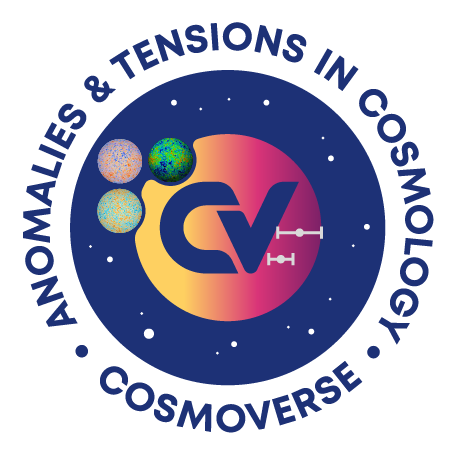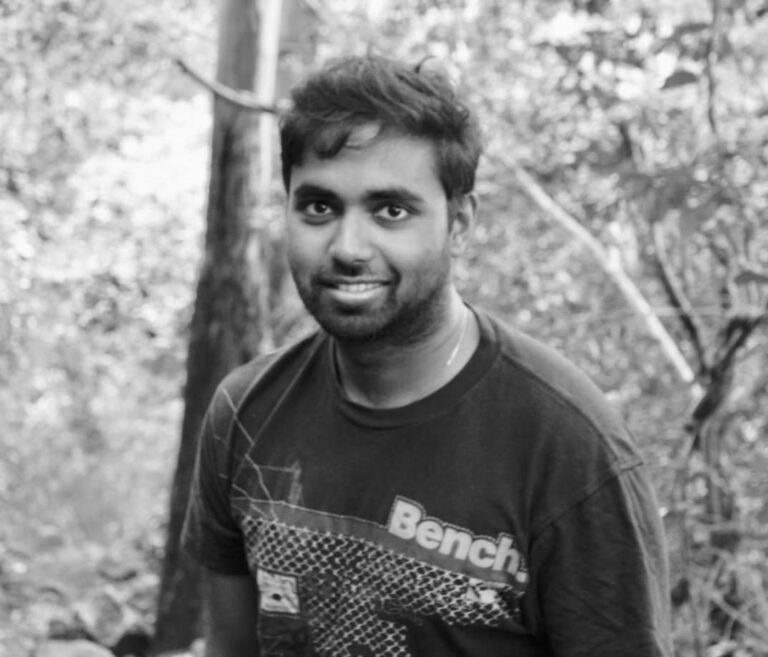What is your name, affiliation, academic position, and job title?
My name is Krishna Naidoo, I am affiliated to the Center for Theoretical Physics PAS as a Postdoctoral Research Associate.
What is your journey?
I was born in Mauritius but moved to the UK when I was 5,spendingthe entirety of my school and working life in the UK.
What is your field of research and/or what project are you involved in?
I work in the field of cosmology where I focus on using the web-like distribution of matter (the cosmic web) to try to understand the underlying physical model. I am particularly interested in using filaments and voids to uncover properties of the dark sector (the nature of dark matter and dark energy, mass of neutrinos) and modifications to gravity. This work has involved constructing and working with N-body simulations and observations of the cosmic microwave background (CMB), large scale structure and the local universe. I am involved in a number of projects, including (1) generating constrained local universe simulations with modified gravity, (2) filament cosmology with the minimum spanning tree, and (3) using the imprint of voids on the CMB to test whether dark matter interacts.
Briefly describe your career trajectory to date. What positions have you held, when and where?
I did my undergraduate (joint bachelors and masters) in Astrophysics at University College London (completed in 2015). After which I did a PhD (again at UCL) in Cosmology supervised by Ofer Lahav (2016-2020). I am now working in Warsaw where I am doing my first Postdoc as a member of the Computational Cosmology Group at CFT PAS with Wojciech Hellwing and Maciej Bilicki.
What are your research plans?
My ambition is to exploit the information from the cosmic web, from the next generation of galaxy surveys, to pin down the physics of the dark sector and fundamental physics.
How does CosmoVerse fit within those plans?
It is a great place to learn from experts in the field about the preeminent issues in cosmology and their implications for fundamental physics and/or systematic issues that may resolve them.
Which of your skills are you most proud of, or find most useful?
I love to write code and implement new algorithms. The library of software that I’ve written over the years is pretty powerful, and because similar problems frequently emerge, sometimes in completely different fields from their intended use, they are constantly being used and updated. There is tremendous power in understanding what’s going on under the hood.
What new skills would you like to learn in the next year?
I would like to learn more about Artificial Intelligence / Machine Learning. I’ve been aware of the techniques for a while but I’m yet to find a project where I can fully exploit them – maybe that will change in the near future.
What are the most exciting open questions in your research area?
The nature of the dark sector is what I’m most excited about, especially dark matter. Dark energy gets a lot of attention but dark matter seems to be the more reachable and, based on the history of particle physics,it may turn out to be the more interesting and complex.
What advances or new results are you excited about or looking forward to?
I’m excited to see how the Hubble and S8 tensions evolve over the next few years and whether new data puts out the fire or keeps it going. It would be really exciting if these tensions point to new physics. So, I suppose new data from the next generation of galaxy surveys: DESI, Euclid and LSST but also from LIGO.
What is your view on cosmic tensions? How does your work connect with this open question in the community?
I’m intrigued by them but at the moment I remain sceptical. I think there is compelling evidence that they are true tensions but there are systematic and theoretical issues that need addressing before we can be certain of their validity.
In my own work, I have shown that cosmic tensions, and a lesser known anomaly from voids, may be signs that dark matter is not behaving as we expect and possibly interacting with dark energy. Moreover, there is a way to test this – by making better measurements of the imprint of voids on the CMB.
In your career so far, at what point were you the most excited, and what were you excited about?
Over the last year I began to realise that freeing one of the assumptions of dark matter may resolve the Hubble and S8 tension and that this could also be tied to an anomaly from the imprints of voids. This was an anomaly I had previously worked on during my masters, much before I had dedicated any time to tensions, so seeing all of these things come together was extremely exciting.
What role do you think a community network like CosmoVerse can play in developing theoretical astroparticle physics and cosmology?
It brings all the experts together, helps them to communicate their knowledge and I hope it will naturally lead to collaborations which over time will help research in theoretical astroparticle physics and cosmology.
What do you like and dislike about being a scientist?
I love being able to spend time thinking about how the Universe works and actually being able to learn something about it. But as an early career scientist, without a permanent position, I dislike the enormous pressure that comes with trying to plot your career in an extremely competitive environment.
Your favourite scientist and/or science fiction film?
My favourite scientist is Albert Einstein, and my favourite science fiction film is ‘Inception or The Dark Knight’.
How do you relax after a hard day of work?
I watch comedies, play games, draw, read.
If you were not a scientist, what do you think you would be doing?
If I couldn’t be a scientist then I would have liked to see if I could do something in animation or video game development.
What do you hope to see accomplished scientifically in the next 50 years?
I imagine we will see quite a bit of advancements in the dark sector in the next 50 years, but the thing that I want to see but don’t expect to see is a proven theory of quantum gravity.
What question would you have liked us to ask you, and what would you have answered?
There’s nothing I can think of.

